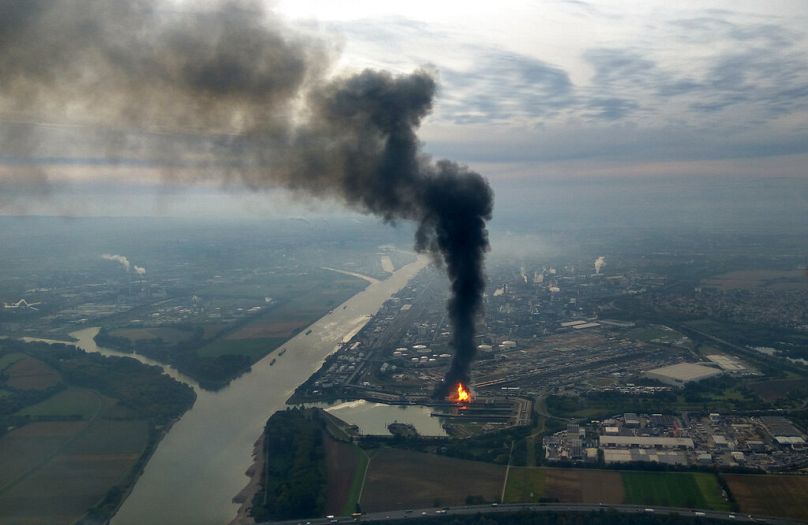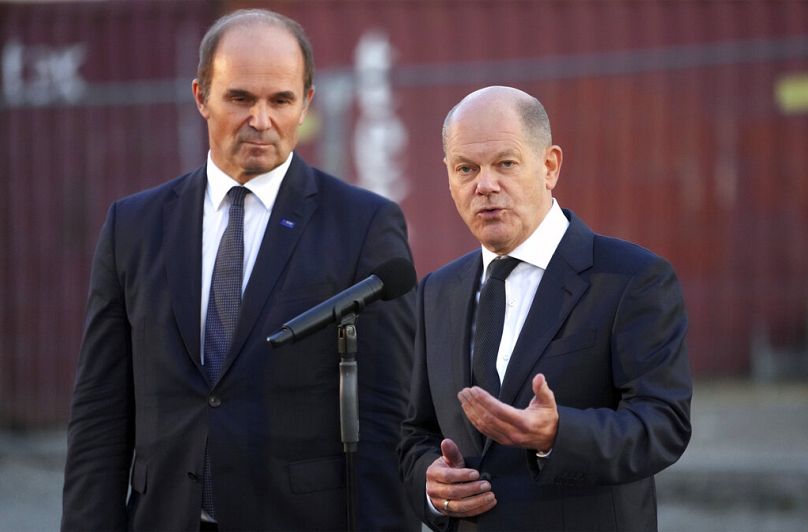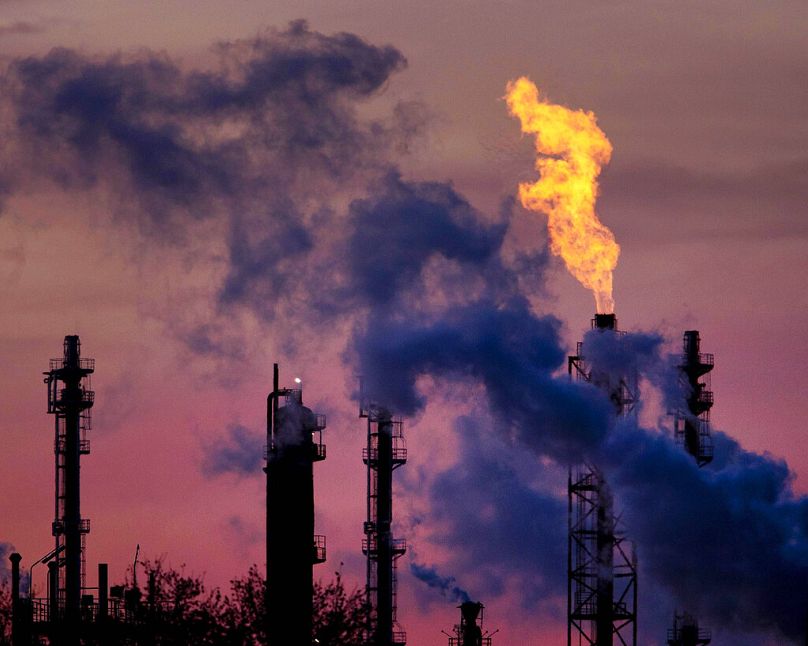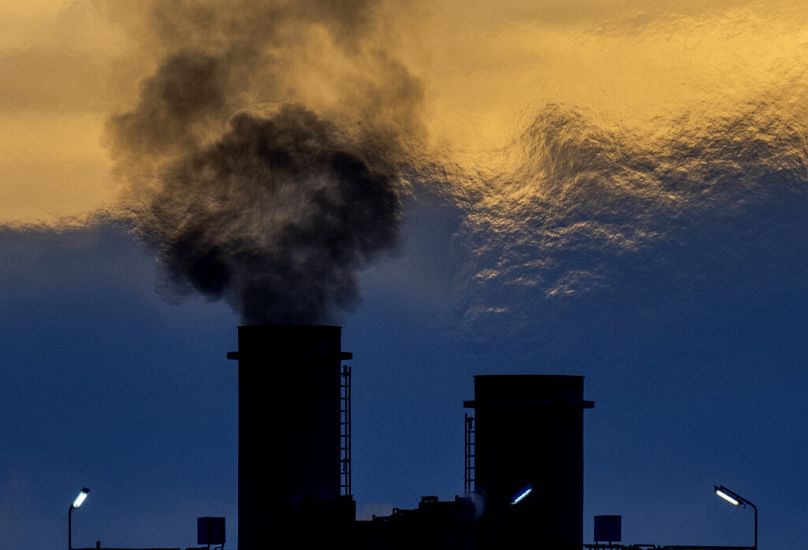EU and member state decision-makers need to agree on robust new rules to get the industry in line and paying its way in full, Vicky Cann writes.
Chemicals giant BASF has a time-honoured tradition of threatening economic catastrophe every time the industry is faced with regulatory measures to rein in its toxic trade.
 ADVERTISEMENT
ADVERTISEMENT
 ADVERTISEMENT
ADVERTISEMENT
But the real catastrophe is how the company imposes a huge burden — materially, morally, and financially — across the continent, from its toxic “forever chemicals” and hazardous pesticides to its contribution to climate change.
BASF shareholders met on Thursday in Mannheim and awarded themselves billions in dividend payments. It is now long overdue for EU politicians to see beyond BASF rhetoric and to get to grips with the toxics and climate crises.
As the world’s biggest producer of chemicals, BASF has a big stake in the outcome of proposed reforms of EU chemicals regulation, part of the flagship European Green Deal.
However, a recent profile by Corporate Europe Observatory exposes BASF rhetoric about the so-called “burden” from the new regulations that it would face.
Legacy of pollution plagues the industrial giant
BASF says the EU’s proposed chemicals regulatory reform “puts a big question mark over the future of chemicals in Europe” and is a factor in its “cost-cutting” in Europe.
And politicians in Berlin and Brussels have traditionally paid heed to the loaded messaging from BASF and other chemicals industry players.
But what about the burden on society of their toxic products and their legacy of pollution?
For example, BASF’s flagship Ludwigshafen site is known to produce PFAS, and the company has 11 such chemicals in its portfolio. PFAS are also called “forever chemicals” due to their persistence in the environment.
The total health-related costs for exposure to all PFAS across Europe have been estimated at €52-84 billion per year, with impacts likely to include liver damage, decreased fertility, and cancer.
A “plausible” figure for European environmental clean-up costs is €10-20bn. And that's in addition to the unquantifiable damage and suffering caused.
It's time for Brussels to get to grips with the crises
While the public burden of these huge health and environmental costs of PFAS does not explicitly show up on anyone’s balance sheet, the costs are real.
And they are even higher when factoring in the costs of producing and using other hazardous chemicals and pesticides.
Thus, it is long overdue for the EU to overhaul regulation to prevent these public burdens from building up further.
Yet, BASF is reportedly among several German chemical and plastic lobbies pushing to undermine the EU-level plan to ban whole classes of PFAS chemicals.
And our report shows how a coalition of industry and centre-right politicians have succeeded in postponing the much-needed reform of the EU’s REACH chemicals regulation.
One of BASF sites alone uses more gas than Denmark
We have been here before. When the EU worked on the original REACH regulation a couple of decades ago, the chemicals industry scaremongered that the proposal would “de-industrialise Europe”.
They were on the wrong side of history then, and little has changed since.
BASF’s huge burden on Europe is also evident in the company’s enormous climate footprint. BASF’s Ludwigshafen site alone consumes more natural gas than the whole of Denmark.
BASF remains wedded to fossil gas, including via hydrogen and fracked gas from the US, and it continues to actively lobby to protect its gas interests. Its approach locks itself into decades of future fossil fuel use.
That leaves the public once again bearing the burden of BASF’s profit-driven consumption of fossil fuels in the form of its contribution to the climate crisis.
The economic losses alone in Europe from the climate crisis have been calculated at around €145bn for the past decade.
We pay for BASF’s burden-shifting and we're running out of time to fix that
While BASF enjoyed sales of over €80bn in 2022, other costs are being passed onto its workers and EU citizens.
This February, BASF unveiled its plans to axe 2600 jobs as part of a cost-cutting exercise, while at this week’s AGM, it handed out another generous €3 billion dividend to shareholders.
Last year it paid out a similar dividend, no doubt pleasing BASF’s wealthy institutional investors such as BlackRock, notorious for its investments in fossil fuels and deforestation, and Goldman Sachs.
And while ChemSec has criticised BASF for not transitioning to safer chemicals with enough speed or commitment, BASF and the wider chemicals industry demand that the public purse picks up the burden for funding research into developing safer chemicals products.
Seen in the context of BASF’s aggressive tax planning strategies, which led to them avoiding a tax contribution worth €923 million in the 2010-14 period, BASF’s burden-shifting is truly outrageous.
BASF and its industry allies want delays and loopholes to upcoming regulations in order to help them shift the economic, social, and environmental burden elsewhere so as to protect their revenues.
But regulation is failing to keep up with the scale of the toxics and climate crises.
EU and member state decision-makers need to get real about the burden that corporations like BASF place on society in Europe and around the world and agree on robust new rules to get the industry in line and paying its way in full.
Vicky Cann is a researcher with Corporate Europe Observatory, a non-profit research and campaign group aiming to expose any effects of corporate lobbying on EU policymaking.
At Euronews, we believe all views matter. Contact us at view@euronews.com to send pitches or submissions and be part of the conversation.














